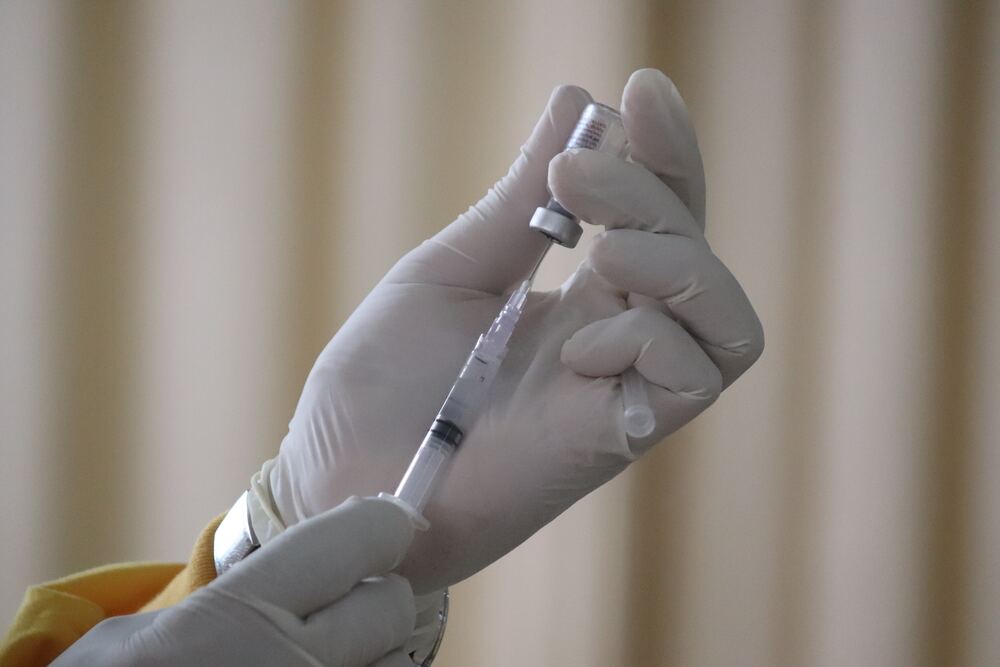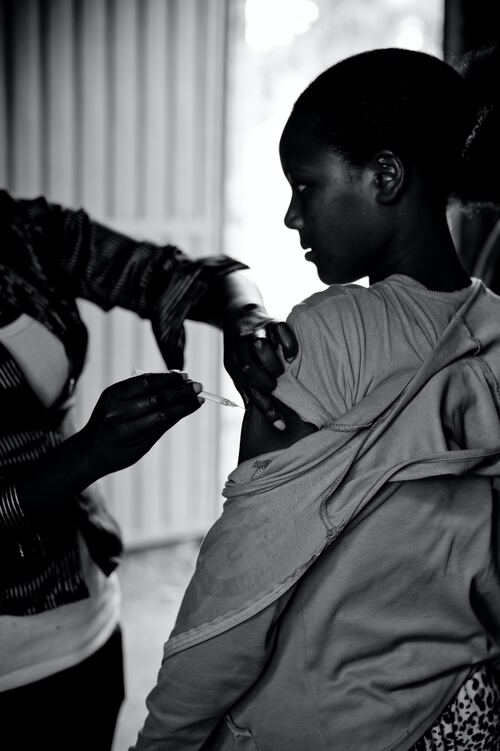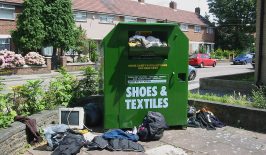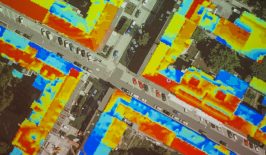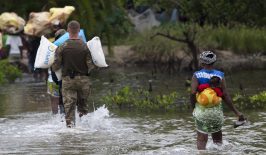In a remote corner of Kenya, life-saving innovation is taking place.
Kenya’s healthcare system has traditionally faced many challenges. Infrastructure, or the lack thereof, has meant that access to medical facilities, pharmacies and essential medicines is often scarce in rural African areas. Many living in these remote regions, estimated at around 38 million (Macrotrend, 2021), have struggled to obtain life-saving medications when they need them most.
The Coronavirus pandemic only exacerbated this issue. Even when vaccines in Kenya became available — months after they were available in the West — the rollout was hindered by a huge variety of factors, including: a lack of health facilities and appropriate spaces where the vaccine could be stored and administered, a lack of health staff and volunteers with the required training to deliver the vaccine, a lack of PPE and no way of registration or keeping records.
Vaccine cold chain management is paramount to effective administration
One of the biggest hurdles was the transportation and storage of the vaccine itself. Vaccines licensed for refrigerator storage, including several of the COVID-19 vaccines, need to be stored at 2 °C-8 °C. Obviously in Kenya, as well as much of Africa, average temperatures sit at around 29 °C, making refrigeration for vaccines essential to keeping them useable. Known as the cold chain, it is imperative that vaccines be properly refrigerated across the stages of manufacture, distribution, storage and ultimately administration or they risk degrading and therefore not being effective.
It’s estimated that 50 percent of vaccines globally spoil due to gaps in cold chains, and the human cost is enormous. Up to half a million children in Africa die each year due to Vaccine Preventable Diseases (VPDs), with 30 million more living with them.
But, keeping these vaccines at the appropriate temperature in a climate like Kenya’s is no mean feat. Having access to an adequate amount of electricity to keep temperatures stable throughout the transportation process in particular has made it impossible for some vital vaccines to reach remote areas. This means that, in Kenya alone, around 38 million people could not have access to lifesaving vaccines.
But, it’s not just medicine that would benefit from stable cool storage. Norah Magero is an engineer and CEO of Drop Access, an organisation that specialises in finding sustainable solutions for supporting rural and off-grid communities in Kenya. Initially, she was approached by a group of dairy farmers looking for a way to transport their milk without it spoiling. The solution she developed was “a portable fridge, it is 20kg in weight and 40 litres in capacity. It is so portable that you can mount it on a motorbike, a bicycle or even a boat or even carry it,” she told Euronews.
Magero soon realised that the potential applications of her invention were much more far-reaching than she had imagined. What if the refrigerator could be used to transport life-saving vaccines, too? “You get so excited when you have, like a ‘bingo’, or a lightbulb idea! Then you get to the nitty-gritty of actualising it,” she said.
Creating Vaccibox was a pain in the arm
As the Coronavirus pandemic took hold across the world, Magero’s idea quickly went from theory to development. Ms Magero realised, in the midst of the Covid pandemic, that her invention might help vaccinate rural communities not already connected to the electricity grid.
After one failed prototype was delivered — overpriced and underperforming — from China, rather than sitting down and accepting its fate, Magero decided to look around her for solutions.
“We thought, ‘Hey, we are engineers, why don’t I look for other engineers who are more excited about manufacturing, and see if we can break down the components of this fridge and see what we can source locally’.”
With her team of local engineers, they decided to build it all from scratch. VacciBox was born.
Supporting communities in Kenya one delivery at a time
The box itself is more than just a refrigerator. VacciBox is also a portable IoT monitoring device that automatically monitors a fridge’s temperature, battery charge, geolocation and stock level. This can then be connected to the VacciBox fridge as well as any other cold storage equipment. It’s AI-enabled — it can forecast the energy consumption and facility needs to help plan operations better. It lso uses digital carbon capture to allow for better management of of vaccination records and stock levels.
Its specifications also make it perfectly suitable for use in rural locations in hot weather. It’s small, light and portable, meaning it can easily be attached to the back of a bicycle or motorbike. There are several technical elements of VacciBox that make it sustainable, too.
“It is solar-powered and it’s integrated with a battery back-up just to ensure that even during the night, and times of very little sun, the fridge is still able to continue operating to keep vaccines cold.
“And it comes as a whole package solution because it is integrated with an online monitoring capability where we are able to know at any one point where the location of the fridge, the location of the vaccines and also what temperature the vaccines are being stored for, just to ensure traceability of these vaccines”.
To date, the VacciBox has helped to deliver polio, pneumonia, measles, Bacillus Calmette–Guérin (Tuberculosis), DPT (diphtheria, whooping cough, and tetanus), COVID-19, and many other vaccines in specific locations in rural Kenya, such as Usungu Dispensary in Kibwezi West Sub-County, Makueni County. Completely off-grid and located 22km away from the nearest electricity grid, prior to VacciBox, the facility transported vaccines twice weekly from local hospitals. Leftover vaccines were returned at the end of the day or when ice packs began to melt. Now, the clinic can stock over 1000 vaccines on-site and local immunization has increased by 45 percent.
Rightfully so, VacciBox has been nominated by the Royal Academy of Engineering for its prestigious Africa Prize.
Ms. Magero and DropAccess as a whole show that with skill and determination, it’s possible to find environmentally friendly solutions for various problems within your own community. Her focus on taking action reflects global research showing solving climate change is now an urgent priority for many young entrepreneurs.

